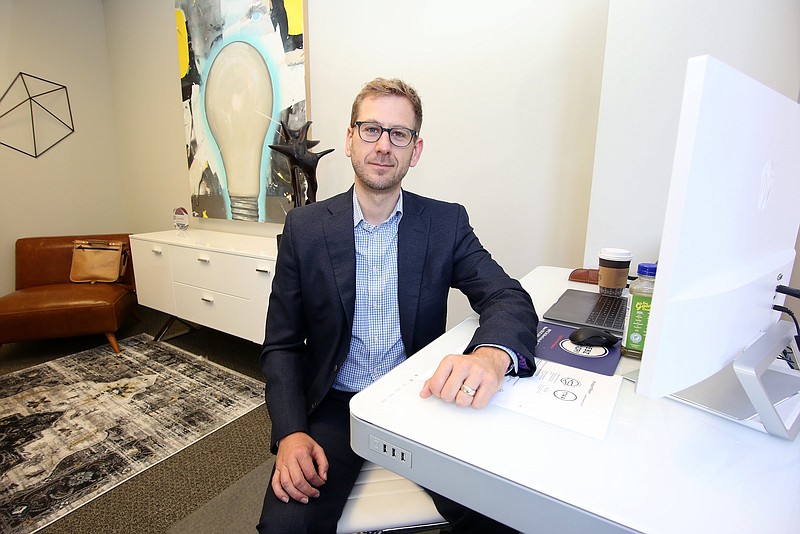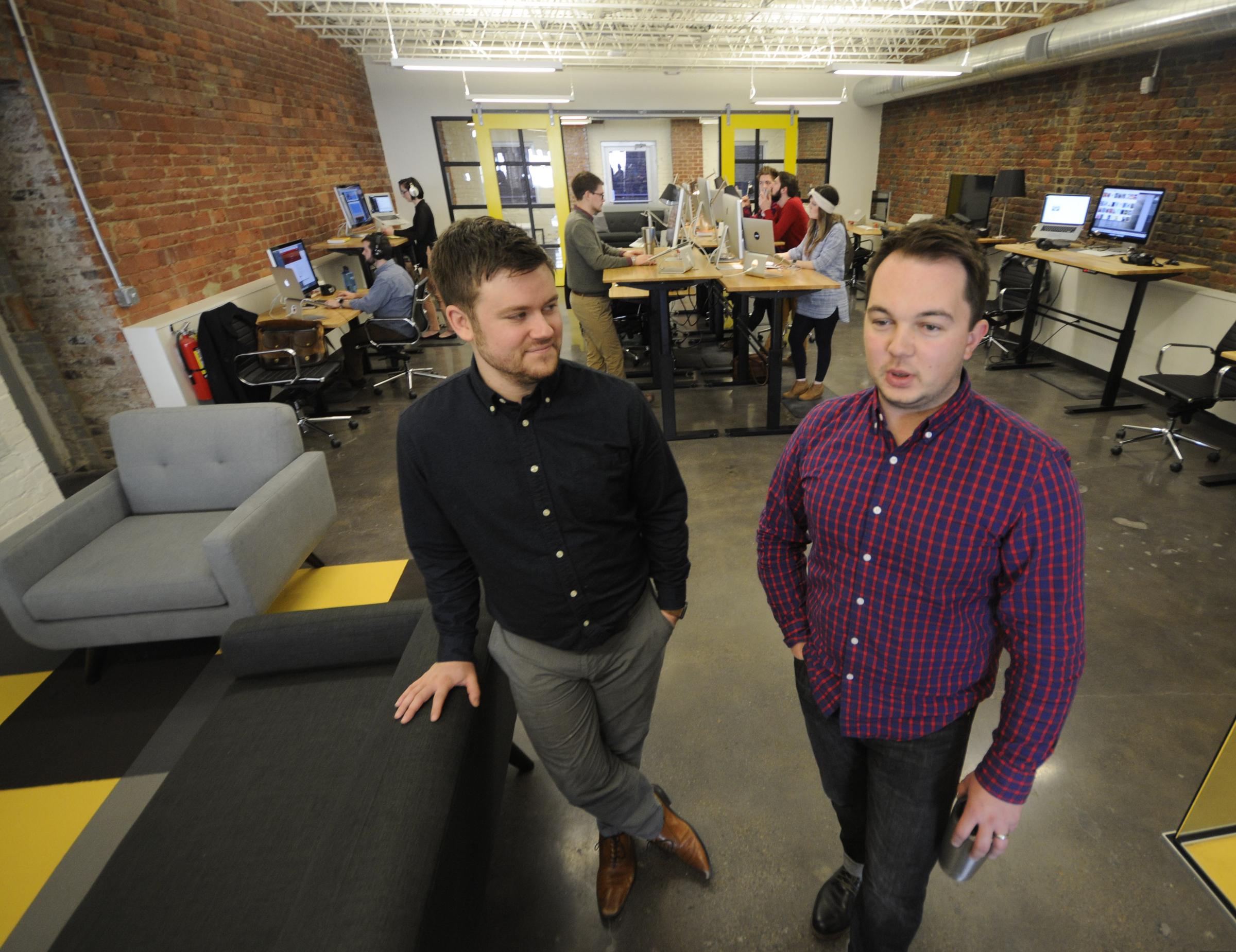While studying law in the San Francisco area more than a decade ago, Kevin Christopher assisted investor R. Paul Herman write his book on the HIP (Human Impact + Profit) Investor. The 2010 book , which is now included in 27 university finance courses, showed that investments across all asset classes can solve human, social and environmental problems - and can be more profitable.
It's a message that Christopher took to heart when he began practicing law and especially when he relocated to Chattanooga and started the Rockridge Venture Law firm in 2017.
"I learned the value of social responsibility and when I had the opportunity to start my own business, I wanted to pursue more than just profits," Christopher says.
About the same time as the HIP Investor took hold a decade ago, states began passing benefit corporation legislation to allow companies to focus on more than just making money. A benefit corporation allows a business to pay attention to the environment, the local community and the business staff, in addition to making money.
So far, 31 states and the District of Columbia have passed benefit corporation laws that allow for-profit companies to focus on more than just the bottom line financial profit of their ventures. Tennessee adopted its "For-Profit Benefit Corporation Act" in 2015 and the law became effective in 2016. It allows for-profit corporations to adopt one or more specific "public benefits" as a formal part of their corporate structure.
B labs started certification of Benefit Corporations to ensure the companies meet environmental, community and social goals, in addition to making money. B Labs scores companies more favorably based upon their environmental footprint, how much they compensate their workers and how much they support and buy from the communities where they operate.
B Corps include such companies as Patagonia outdoor clothing designer Patagonia, the online financing venture Kickstarter and food distributor Danone North America. B Lab started in 2007 to help certify businesses as benefit corporations that met basic levels of environmental, social, community and staffing support. Today, there are over 2,700 companies, across 150 industries in 64 countries.
Last year, Christopher's Rockridge Venture Law firm, which specializes in patents, health technology and startups, became one of only a handful of businesses in Tennessee to be certified as a B Corp. Christopher earned the best score of any of Tennessee's five B Corporations by giving 10% of its gross revenues last year to non-profits focused on environmental and social impact, in addition to his pro bono work and meeting B Lab criteria for community engagement and staff pay and benefits.
B Corporations in Tennessee
Five companies have become Certified B Corporations in Tennessee since the state first authorized such corporations:* Newly Inc. in Nashville, home goods from recycled materials certified in April 2019, (Score of 84)* Rockridge Venture Law in Chattanooga, intellectual property, corporate law certified in 2018 (score of 114.4)* Nisolo in Nashville, leather shoes and accessories, certified in October 2017 (score of 89)* Whiteboard in Chattanooga, brand strategy and design certified in July 2017 (score of 82.4)* Good.Must.Grow.LLC in Spring Hill, socially responsible marketing certified in January 2013 (score of 109.2)Source: B Corporation Directory. Scores based upon self reporting in B Corp assessment surveys
Christopher, a Nashville native who studied law and biomedicine in California, said his environmental interest was sparked by living in central China more than a decade ago when he saw the widespread smog and air pollution and its impact on those living there. After graduating from the University of California Hastings law school in 2010, he worked on a distributed energy startup that developed a chemical conversion for biomass products. He was drawn back to Tennessee by his desire to live in a more family-friendly environment closer to his in-laws in Cookeville.
"San Francisco becomes a different city once you start having kids," he says.
There are only five benefit corporations in Tennessee and 15 in Georgia, but Christopher thinks that number will grow over time as more businesses pursue broader missions and want to certify their community work and support for non-profits.
The B Corp certification helps more than just the communities and causes such companies aid, Christopher says. The businesses themselves benefit by drawing employees and customers who appreciate working with or for a company with a broader mission.
"When you look at millennials and where they choose to work, there is a lot of brand recognition in that B Corp mark," he says. "There is also that extra advantage that you might be able to sell better in certain markets because you have that affiliation."
On Black Friday last year, Patagonia said it would give away $10 million from its sales. 50% of their visitors were new visitors and the company ended up having their best Christmas sales ever even though they gave away all this money."
That is what helped inspire Tennessee's first B Corp, Whiteboard in Chattanooga, to seek the state's first B Corp certification two years ago.
Whiteboard, a branding, marketing and strategy development firm started nearly a decade ago, bills itself as "a creative agency with a purpose.
"We not only desire to be recognized for our creativity and skills set but also for our commitment to our team, our partners, our community, and city," says Taylor Jones, one of the company's co-founders. "I sit in meetings with non-profit leaders who are trying to find out funding models and I want to recommend to them strategies that are used in the for-profit sector. And I sit in meetings with the for-profit leaders who have a great product, but they are losing customers because their company isn't communicating or it is not aware of its contribution or side effects on the world. So I think these things are colliding. I think society will continue to demand that organizations have a higher social conscious, whether they are non-profit or for-profit businesses."

